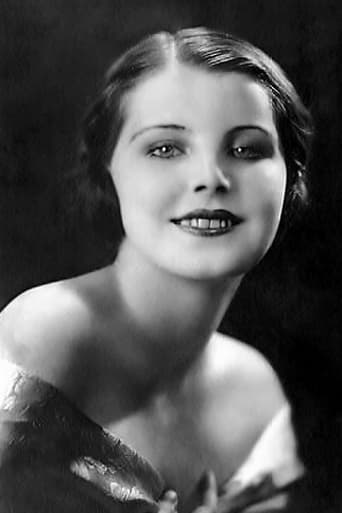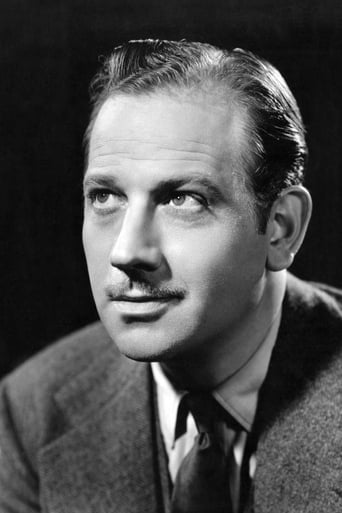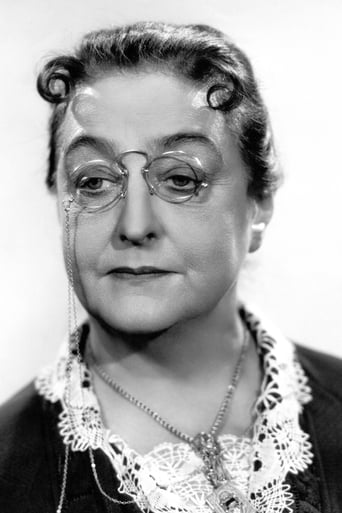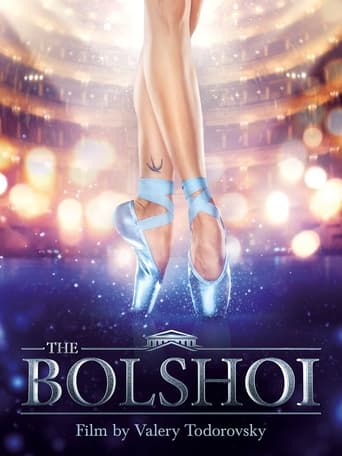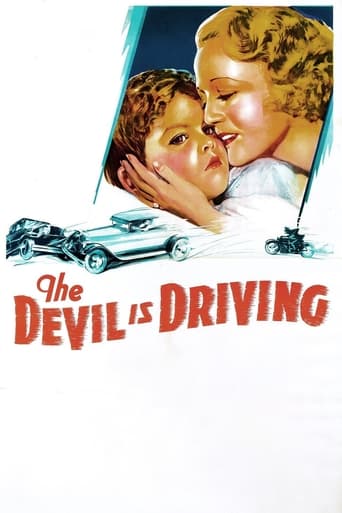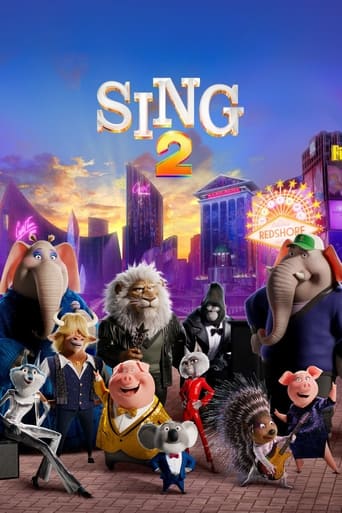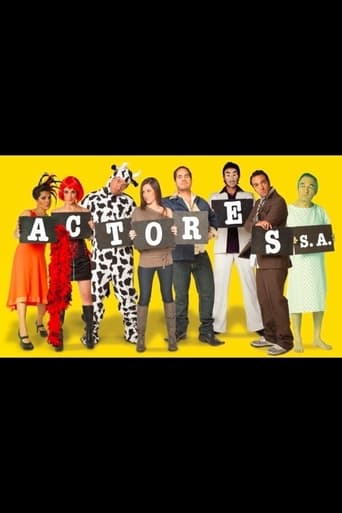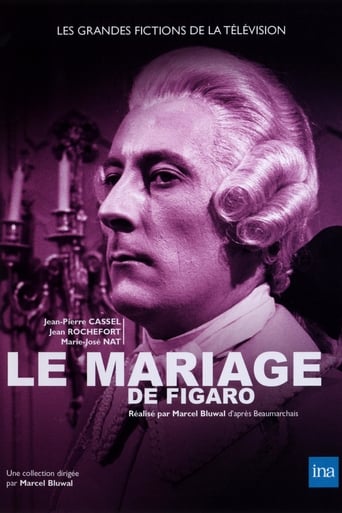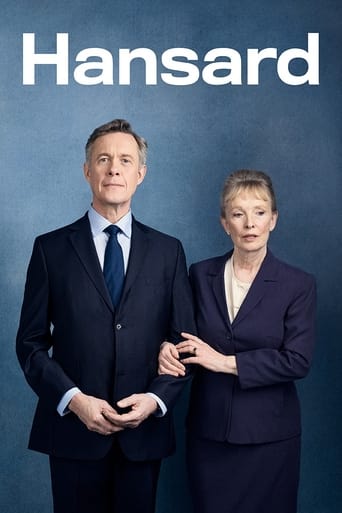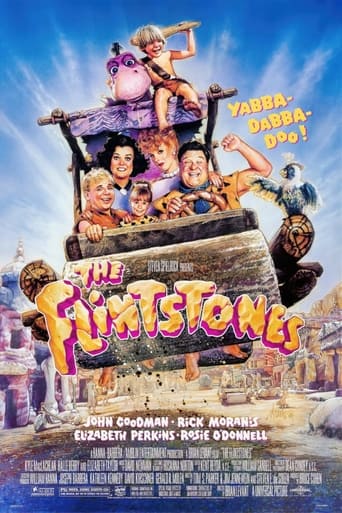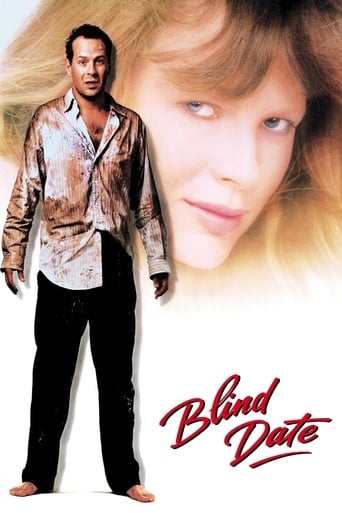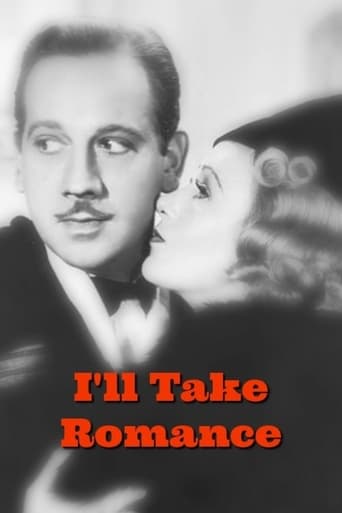

I'll Take Romance (1937)
Theater manager James Guthrie's (Melvyn Douglas) career depends on famed soprano Elsa Terry (Grace Moore) singing in his Buenos Aires opera house, however, Elsa breaks the contract in favor of a more lucrative deal in Paris. Desperate, James begins showering her with flowers and candy in an attempt to woo her to the Argentinian opera house. When Elsa overhears James confess to his friend Pancho that he'd be willing to resort to kidnapping to get Elsa to Argentina, she mistakenly believes his motives to be solely romantic.
Watch Trailer
Cast


Similar titles
Reviews
An early attempt for success in film operetta as the rival to Jeanette MacDonald didn't work well for opera diva Grace Moore ended quickly thanks to the public aversion to musicals, but the sudden success of movie musicals brought her back with a fair amount of critical acclaim and public interest. She lightened up her personality, mixing in daffy comedy with the Aria's, even tossing in a few standards and popular novelty songs. Here, she's a seemingly high strung diva who finds out that she does have a sense of fun, finding romance with agent Melvyn Douglas who is trying to get her to honor an engagement in Argentina that she's reneged on for a vacation in France. With his verve, she might change her plans, but not without some issues along the way.There's an "oom pah pah" feeling to a few of the non opera songs she gets to sing that will surely have your feet tapping. She has a sparkling personality and a dazzling smile to boot, certainly no iron butterfly (Jeanette MacDonald's nickname). In fact, she was the one to score an Old nomination for "One Night of Love" while MacDonald was overlooked for her big success, "The Merry Widow". Douglas, so serious looking, proved that he was not what he seemed as a leading man in screwball comedy. Then there's Helen Westley as her mentor, a retired opera star embittered by age yet only gruff on the outside, suddenly young again when Douglas makes up a story simply to get on her good side. Westley has several hysterical exchanges with Moore's wisecracking maid, played with a witchy know how by the scene stealing Margaret Hamilton who gets a laugh simply by commenting on her own appearance. In a brief drunk scene, she's an absolute hoot.This is the type of film that becomes charming simply because it is not as highbrow as one would expect, made with the intention of bringing classical music to the masses in an appealing way. When Moore sings a famous aria from "La Traviata", Douglas's pal, Stuart Erwin, comments on his curiosity as to why it is so often revived when it was originally a flop. Moore shows just how lovely she is when she sings the title song. It's a shame that she only made a handful of film's, as she has the look and charm of Irene Dunne, the voice of an angel, and a fantastic wardrobe. Coming from Columbia (at the time considered a poverty row studio), this has all the elegance of the majors, and is done tastefully without becoming long haired and uppity.
I was moved to write this review because I took strong exception to some of the other reviews I just read here of this film.Is it a masterpiece? No. Is it predictable to a certain extent? Sure.But the singing and the musical numbers are not interruptions; they are not diversions; they are the whole point.In fact, the entire movie, more than anything, is a reinforcement of the message that music, and a wonderful person who sings it beautifully, is something important enough for folks to travel halfway across the globe to engage and to hire.Every time the movie takes its time to present a snippet of Traviata in its entirety or, more miraculously and effectively, a huge totally uncut snippet from the wonderful first-act duet in Butterfly, it is sending the message "You wonder why it's so important to the Buenos Aires management that Miss Telly keep her contract and sing at their opera house? This is why! Listen to that music and listen to that voice." If the movie is about the need to persuade an errant diva to fulfill her contract, then the musical numbers answer the question as to WHY it's so important. Why is it so important to them? Why are they angry enough to sue over the loss of such an opportunity? The musical numbers answer that question, the Butterfly sequence most eloquently of all. Moore's perfect light lyric soprano voice lifts the movie from mere silliness to real sentiment. Without them, the movie would really have no point. I'm really surprised that so many of you didn't get that!!!
Back in the day, Grace Moore was a huge opera star. Somehow, the studios thought they could translate this into making her a movie star but after less than a dozen films, she just didn't make much traction in the film industry. Her acting wasn't bad but she didn't exactly have a movie star look and her singing style was something most viewers wouldn't have enjoyed...even more so today. Fortunately, Columbia paired Moore with Melvyn Douglas, an actor who had an easy-going acting style and brought out the most in this otherwise limp film.The film hampers itself by creating a pretty dreadful conflict...one that makes viewers immediately dislike Moore's character. Apparently, this singing diva has a contract to sing in South America but is planning on just ditching it in favor of singing in Paris. I don't know about you, but anyone totally ignoring a contract and the impact breaking it would have on others makes me pretty angry at her. Douglas plays a guy hired to try to get her to South America and eventually he tries to use romance to woo her that way. Unfortunately, every time this film starts to get interesting, Moore breaks into song....and most of the songs are operatic. I was watching the film at home and whenever she sang, I did chores! Too bad, as it's otherwise an agreeable little film.
By the time Grace Moore got around to doing I'll Take Romance for Columbia Pictures the mid thirties vogue for opera stars on the screen was fading. This was her last film under contract to Columbia and hereafter except for the French film Louise, Grace Moore concentrated on the grand opera, the concert stage, radio and commercial recordings. Until Mario Lanza came along, Grace Moore was the most popular selling classical artist on record.Maybe had the film been done by someone like Jean Arthur who was an expert in screwball comedy with Moore dubbing her voice, I'll Take Romance might have come out better. When she's not singing, Grace just can't get into the screwball spirit.It's certainly a screwball plot she has to deal with. Of course Grace is an opera singer who on a diva's whim decides she just doesn't feel like going to Buenos Aires to fulfill an engagement. Instead she wants to go to Paris.Melvyn Douglas supplies his well worn charm as he saunters through the role of the guy who has to get her to Argentina by hook or crook. Accent is definitely on the latter as he resorts to kidnapping her. But if you follow the screwball comedies of the Thirties I think you know where this one is going.As second leads and sidekicks to the leads, Margaret Hamilton and Stu Erwin are an interesting team. I can't recall any other film where Margaret was actually being romanced a bit herself even if it was by Stu Erwin.Besides the usual opera arias for Grace, she also got in the title song one of the staples of her concert repertoire. If this film is remembered at all today it's because of the Ben Oakland-Oscar Hammerstein II song, I'll Take Romance. To both see and hear Grace Moore perform the song makes the film worth seeing.


